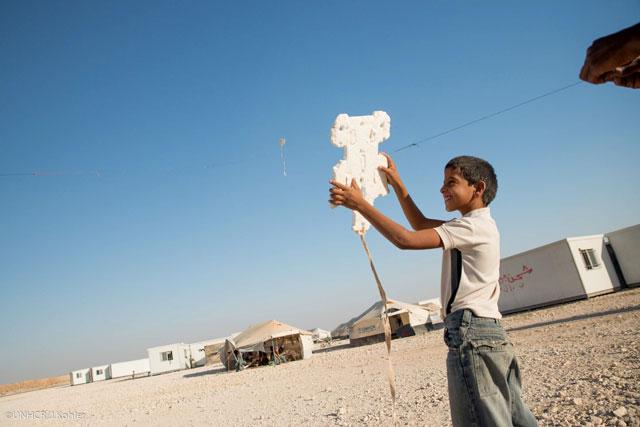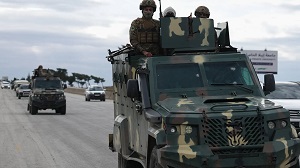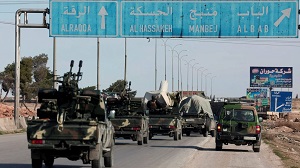Jordan aiming for integrated response to Syrian refugee crisis — population council

The Jordan Times
AMMAN — The Higher Population Council on Saturday said that the Jordan Response Plan to the Syrian crisis 2018-2020 aims to provide a framework for an integrated response to human development in which "the needs of refugees are met to the maximum extent possible", based on national laws and policies.
In a statement on the occasion of World Refugee Day, which falls on June 20 under the slogan "The COVID-19 pandemic: Every action counts”, the council noted that Jordan seeks to meet the needs of refugees by strengthening the ability of national institutions and organisations to provide services.
The statement also highlighted the Kingdom’s aim to mitigate the impact of the refugee crisis by supporting host communities and vulnerable Jordanians, the Jordan News Agency, Petra, reported.
Secretary General of the Higher Population Council Abla Amawi said that the celebration of this day is an opportunity to review the challenges and concerns faced by refugees; especially as Jordan is one of the countries most-affected by the Syrian crisis.
Jordan ranks second internationally in terms of hosting the highest share of refugees per capita in the world, Amawi noted.
UNHCR figures indicate that Jordan hosts 74,7875 refugees, 87.9 per cent of whom are Syrian and 9 per cent Iraqi, followed by Yemeni, Sudanese, Somali and other nationalities, the secretary general added.
She noted that 72,000 refugees suffer from critical health conditions, more than 29,000 refugees are people with special needs, about 15,000 refugee women are at risk and more than 2,000 children live without their parents, while 83.3 per cent of the refugees live in urban areas and 16.7 per cent are in camps.
Regarding the dangers women face under the prevailing circumstances, Amawi said that the impact of the coronavirus pandemic is "worse" for refugee women, as it exacerbates the violence, exploitation and sexual assault they face, in addition to the increase in economic burdens as a result of the curfew.
The UNHCR Multi-Sectoral Rapid Needs Assessment shows that 35 per cent of Syrians have lost their jobs permanently compared with 17 per cent of Jordanians, and that 52 per cent of workers in the informal sector do not possess any type of contract, be it written or verbal.
In regard to addressing the repercussions of the coronavirus pandemic on all groups of society, especially Jordan’s vulnerable groups including refugees, the council recommended providing temporary cash assistance to support access to food for families unable to meet their food needs, among other recommendations.
Latest News
-
 Syrian army says entering area east of Aleppo after Kurds agree to withdraw
Syrian army says entering area east of Aleppo after Kurds agree to withdraw
-
 Sisi Says he Values Trump Offer to Mediate Egypt-Ethiopia Dispute on GERD
Sisi Says he Values Trump Offer to Mediate Egypt-Ethiopia Dispute on GERD
-
 SDF pulls back from eastern Aleppo, consolidates east of Euphrates
SDF pulls back from eastern Aleppo, consolidates east of Euphrates
-
 Washington Enhancing Military Presence in Middle East amid Iran Tensions
Washington Enhancing Military Presence in Middle East amid Iran Tensions
-
 Hassan meets with President Aoun, reaffirms Jordan’s support for Lebanon
Hassan meets with President Aoun, reaffirms Jordan’s support for Lebanon